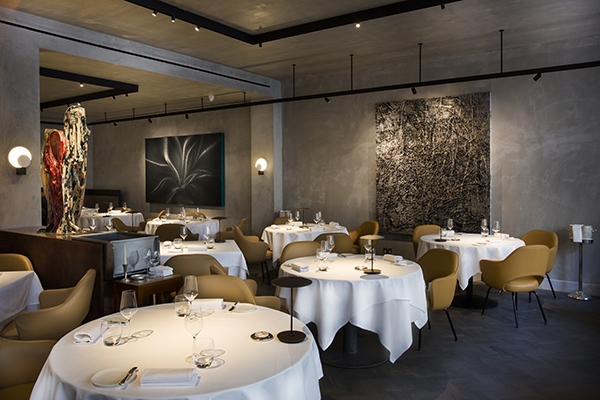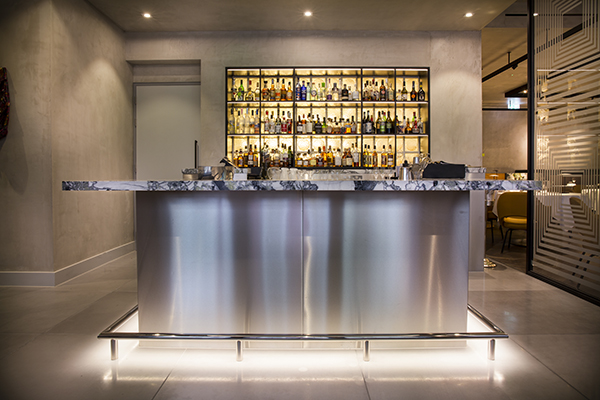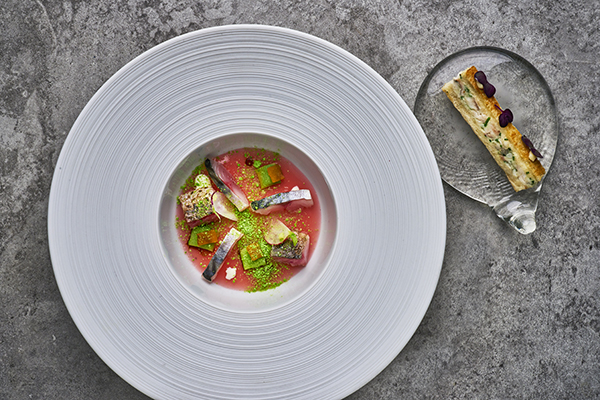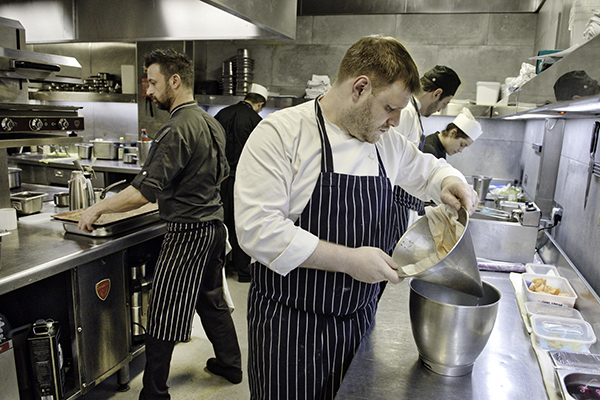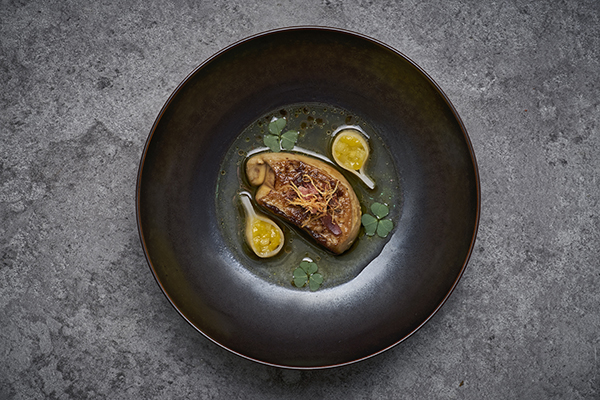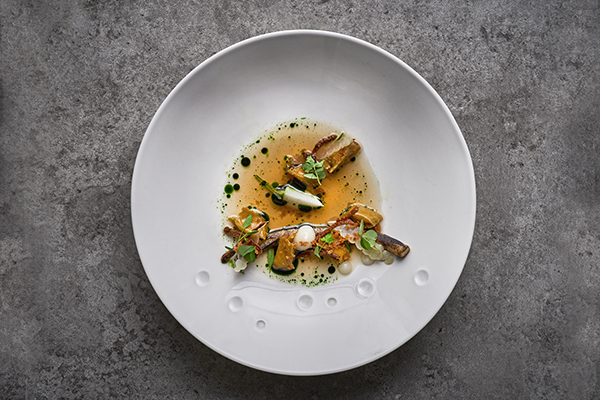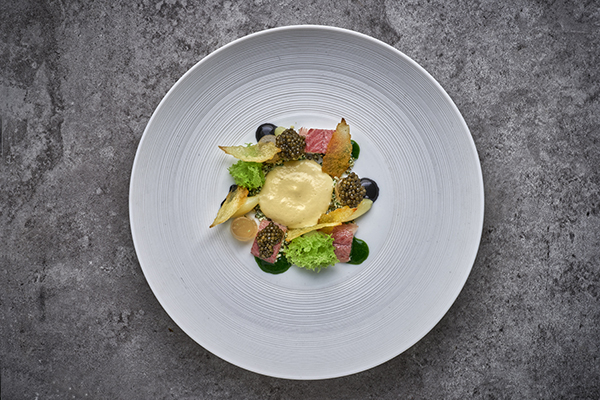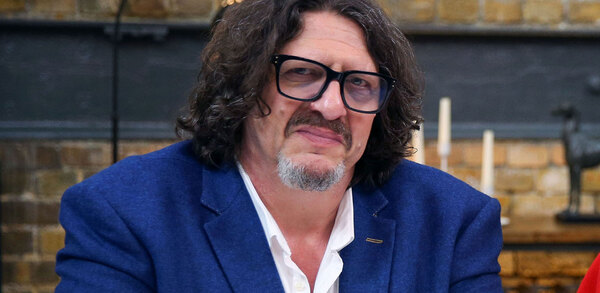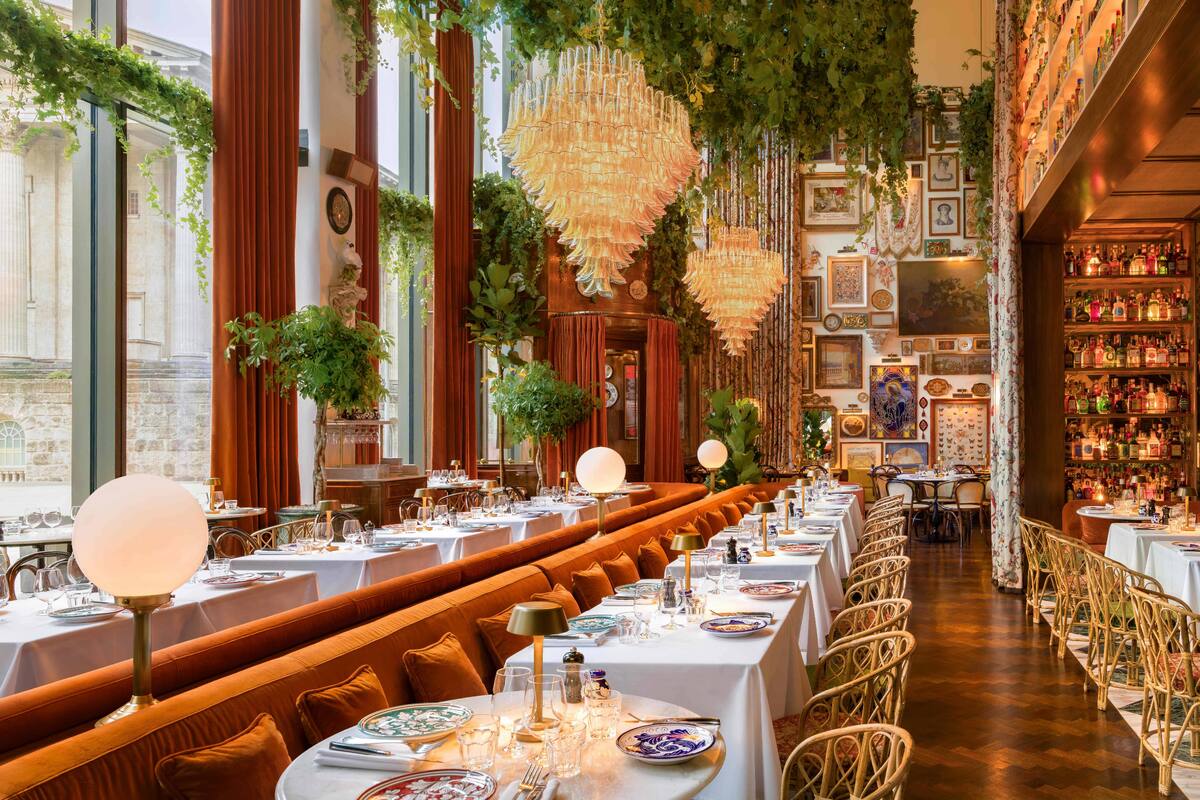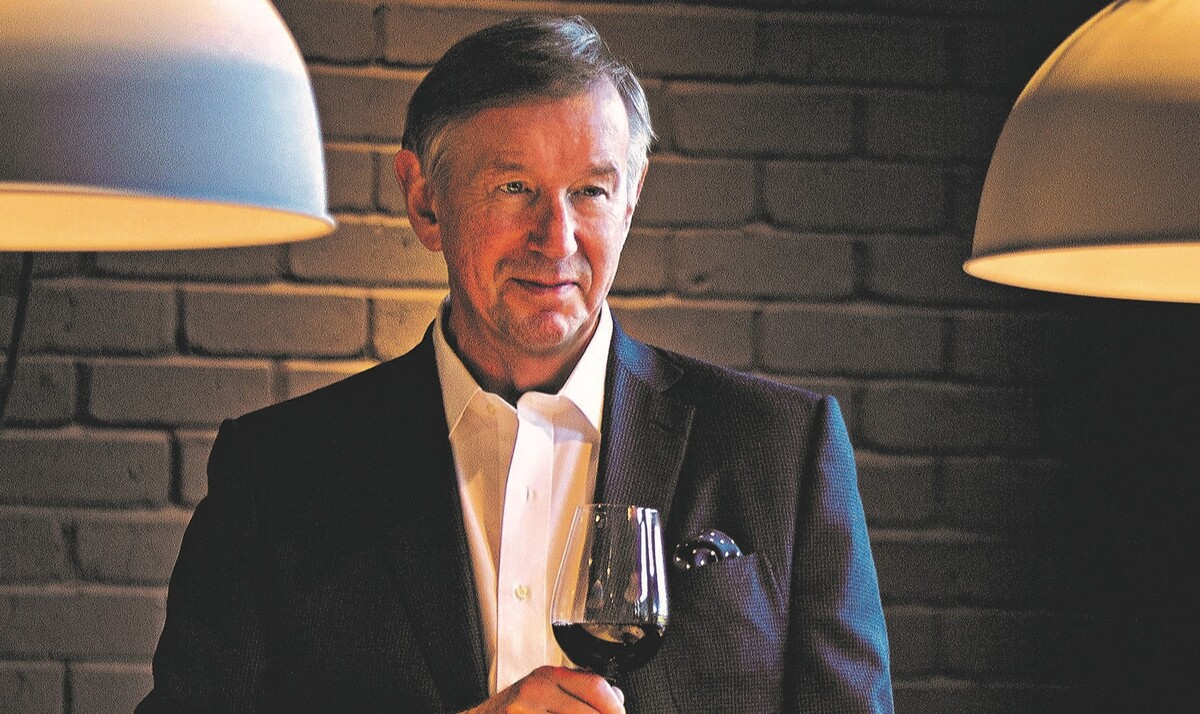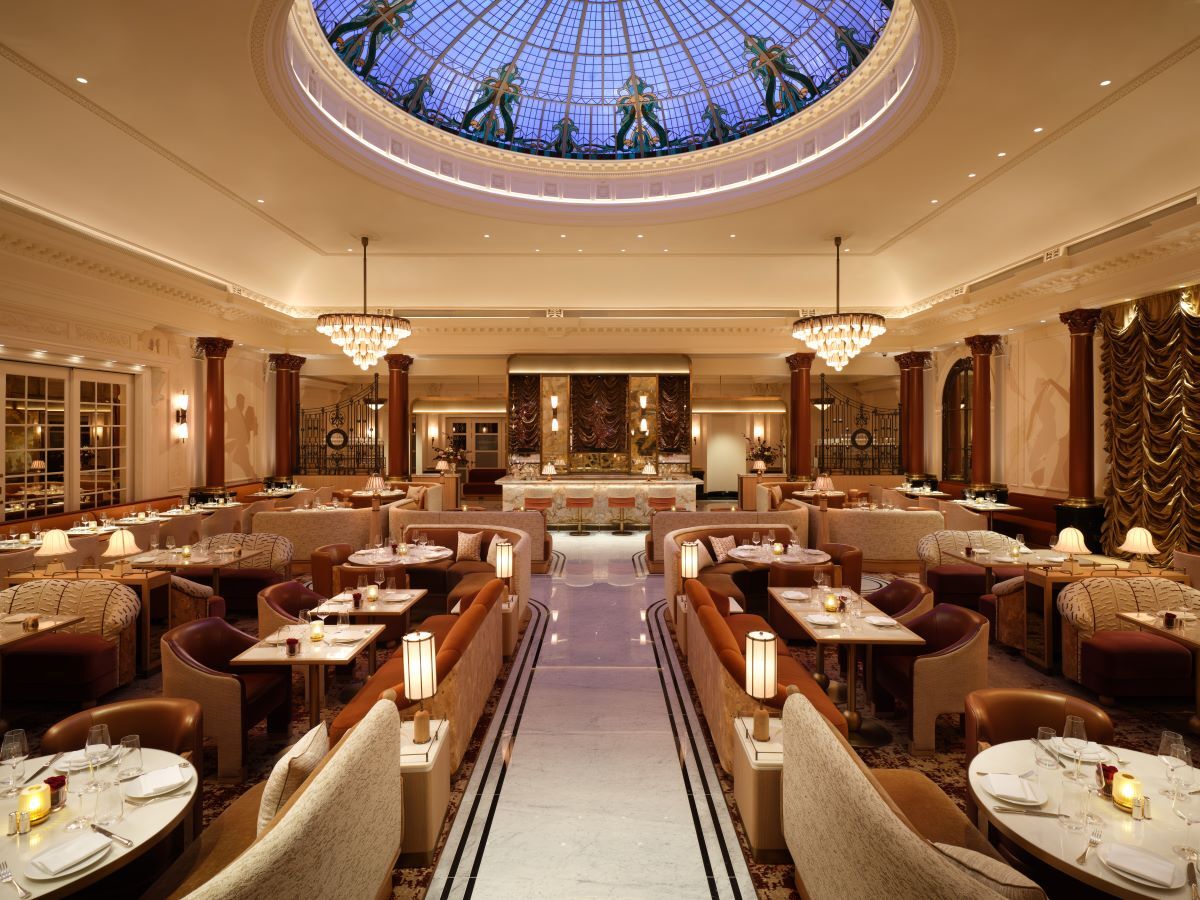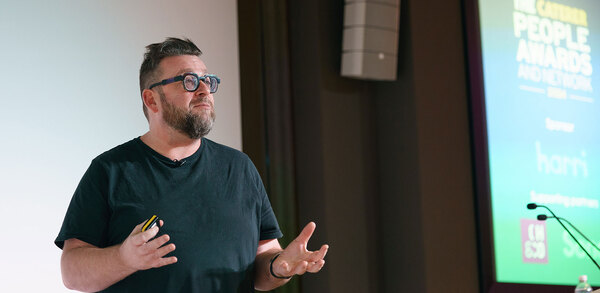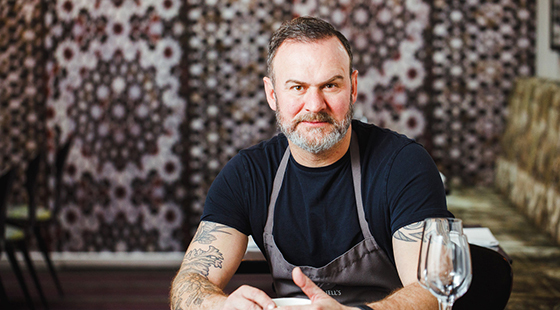Interview: Marlon Abela, founder of MARC restaurant group
Marlon Abela, founder of the MARC restaurant group, is not afraid of fine dining. His plans for the Square in London's Mayfair include a refined Japanese-influenced menu that will showcase, in his words, "epicurean excellence", and reinvent fine dining for the future
Weâre in the Square in Mayfair, a couple of weeks before the restaurantâs opening, following a complete makeover and the appointment of a new chef. In case you missed it, the Marlon Abela Restaurant Corporation (MARC) acquired the iconic restaurant in March last year from two-Michelin-starred chef Phil Howard and restaurateur Nigel Platts-Martin. And yes, he decided to keep the name (more of which later).
It has had a bit of a false start. Abela had installed chef Yu Sugimoto in the kitchen soon after moving in, but there was a family crisis and he had to return to his native Japan. So the Square closed its doors on 11 August for a major refurbishment. âHe was a wonderful chef â" we were very sad to lose him,â shrugs Abela.
The whole episode has prompted some navel-gazing â" namely, the re-evaluation of fine dining, looking at what customers want, and what the next decade of fine dining will bring.
Not for Abela the current trend for a more casual approach to haute cuisine, precipitated in part by rumblings from some quarters that fine dining is dead (Abela blames the press on this matter). In fact, Abela, owner of two-Michelin-starred restaurants the Greenhouse and Umu, also in Mayfair, is going in the
opposite direction, ushering in âa new era of epicurean excellenceâ, as he puts it.
âWhat do I mean by epicurean excellence, exactly? Itâs about the quality of the ingredients. We donât cut corners â" to the point where my management tells me off. We probably should have more control here, but we donât impose suppliers on our chef. They go to whomever they want.
âTake our sake list at Umu. We have one of the largest sake and wine lists in the world, and that takes a lot of capital investment, but it is what we are known for,â he says. There are a staggering 3,500 wines on the list at the Greenhouse and 2,000 at the Square.
âEpicurean excellence is also about environment. We are in the heart of Mayfair and the Mayfair customer base expects the very best â" and we know Mayfair,â he grins. âYes, the interior at the Square will be luxurious, but this time, in a more minimalist way. By that I mean that every part of the restaurant has an intrinsic design value, whether thatâs the lighting, the chairs or the napkins. Thereâs no superfluous decoration. I donât want that when I go to a restaurant â" and neither do our customers.â
But forget the hushed dining rooms of old â" Abela wants an energetic vibe at the new-look Square. âWe want the Square to be dynamic, high energy â" and that is a huge step away from the connotation of fine dining. How do we do that? With the space. Thereâs a bar area as soon as you walk in, where you can sit at the counter and eat the full menu if you want, and with the same style of service.â
One rather radical departure from your average fine-dining establishment is the decision to deliver the dish descriptions only at the start of the meal, not during (unless requested by the customer). âWe wonât announce the dishes when they are being served; we donât want to interrupt the conversation,â explains Abela. âThis is another example of how I think fine dining is evolving â" or certainly needs to.â
Light fantastic
Menu structure, too, is key to MARCâs new approach to fine dining. âI donât like the imposed set menu, Iâve never been a big fan. I understand why chefs do it and why some restaurants have to do it, and that it works for them, but itâs not our model,â he says. âI think people want more choice â" generally in life, and therefore on a menu, too. So we are adopting a four-course menu with a choice of five dishes for each course, plus amuses-bouches and petits fours â" but they will be light,â he promises.
A recent meal at the Greenhouse, where chef Arnaud Bignon has garnered two Michelin stars, bears out this approach. The meal, which included dishes such as Dorset crab with mint, cauliflower, Granny Smith apple and curry, and Orkney scallop carpaccio, Jerusalem artichoke, sea urchin and Piedmont hazelnut, eased from one umami-rich broth to another with a strong Japanese aesthetic running throughout. Indeed, Japanese cuisine is a huge influence for MARCâs chefs. âI think Japanese cuisine has been the strongest influence on chefs over the past decade. Itâs how we like to eat,â declares Abela.
I wonder how this all sits with the Squareâs new chef, Clément Leroy? Leroy was executive chef at the Auberge du Jeu de Paume hotel in Chantilly in France, and was previously part of the team that helped Guy Savoyâs eponymous restaurant in Paris win its third star in 2002, working for him for 10 years.
âLetâs talk politics, shall we? I voted Brexit, even though I knew that there would be an immediate impact on my business. Do I regret it? Not at all. What the EU set out to be is not what it is now. I think the EU is a bloated and dysfunctional institution, and I think long term, it is damaging for the UK. Short term? Yeah, itâs a problem. But the British have always had the ability to fall on their feet â" weâre at our best when weâre left to our own devices. Of course, Iâm worrying about staff. Do I think weâll manage? Yes, weâll manage. Weâll have to adapt to the circumstances. We did it in the recession 10 years ago, and weâll do it again now.â
A living legacy
Abela took the bold step of keeping the Squareâs name, which is a lot to live up to. âFirst, our customers already know the Square. Having a restaurant with a worldwide reputation is a platform that you can build on. Yes, there is an association with Phil Howard, of course, but the restaurant has been here since 1991, and I thought it was a shame for London to lose one of its great names. I would rather build on a legacy and build on a heritage than destroy it. We did the same with the Greenhouse. Though what the Greenhouse is today is so very different from what it was before. In hindsight, I should have changed the name,â he admits.
So whatâs next for MARC and Abela? âOnce we have the Square relaunched, we will focus our attention on Greenâs,â he says. MARC acquired the majority stake in Greenâs Restaurant and Oyster Bar in St Jamesâs in August 2014. The restaurant, which was established in 1982 by the Duchess of Cornwallâs former brother-in-law, Simon Parker Bowles, has long since closed and site owners the Crown Estate have demolished it, so Abela is on the hunt for something bigger and better in Mayfair. He also has plans for an upscale Italian restaurant. âIâm not saying that the restaurants we plan to open wonât be a little more casual, but we always want them to be the best in that category. So if we open an Italian restaurant, we want it to tick all our boxes,â he says.
The MARC bakery, too, is online for expansion. âWe opened the bakery only three years ago, yet itâs now supplying most of the top hotels and restaurants in London,â says Abela, proudly. It began life in the basement of his Berkeley Square private membersâ club, Mortonâs, because, according to Abela, there was no decent bread in London. But when rents started rocketing, he decided that operating a bakery in Berkeley Square wasnât the smartest thing to do, so he moved it to a unit in Perivale. âWe had too much capacity to just make bread for ourselves, so we started to sell our products wholesale, and now itâs thriving, with lots of new opportunities presenting themselves. We will soon be at capacity, so we will have to look for a new site. Once weâve done that, we will look at retail opportunities for the bakery,â he reveals.
âLook at the openings in the past four months. And there is room for more. There are markets for fine dining that didnât exist 10 years ago. And there are so many different interpretations of fine dining now â" and thatâs a wonderful thing. Fine dining is more than just a dish.
âSo in terms of the evolution of the Square, and the evolution of fine dining, when all those different elements and details come together, you suddenly have a restaurant that is very new in spirit, which is challenging the times, and which looks to the future rather than the past.â
From the menu at the Square
- Smoked Lincolnshire eel, caviar, Agria potato, watercress
- Baby violet artichoke, confit quail egg, trompettes, vin jaune
- John Dory, celery, sea urchin, lychee
- Malt-crusted lamb saddle, razor clams, seaweed butter, savoy cabbage
- Salt-baked pineapple, kombu, coconut, salted-butter ice-cream
MARC in a nutshell
Marlon Abela Restaurant Corporation (MARC) was founded by Marlon Abela in 2001. Its portfolio includes two-Michelin-starred restaurants the Greenhouse and Umu, as well as Mortonâs Club, all in Mayfair, Greenâs restaurant in St Jamesâs (soon to reopen), OW Loeb Wine Merchants, near London Bridge, MARC Fine Wines in Mayfair, and MARC Patisserie and Bakery in Perivale, Ealing. In the US, the company runs Bistro du Midi in Boston and the François Payard bakeries in New York and Las Vegas.


